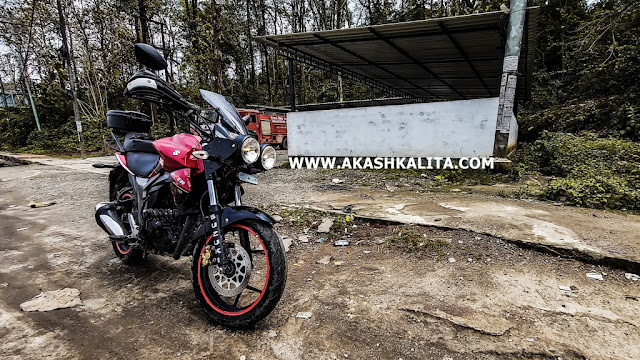ENGINE BRAKING:
 The most common practice to slow down a vehicle is disengaging the clutch and applying the brakes simultaneously. Although very common this practice of braking is not efficient. It causes more wear in the brakes pads due to friction and heat, increases the stopping distance, and also might cause the wheels to lock and skid on the road especially if your vehicle does not have an ABS (Anti Lock Braking) system.
The most common practice to slow down a vehicle is disengaging the clutch and applying the brakes simultaneously. Although very common this practice of braking is not efficient. It causes more wear in the brakes pads due to friction and heat, increases the stopping distance, and also might cause the wheels to lock and skid on the road especially if your vehicle does not have an ABS (Anti Lock Braking) system.
To avoid all these one good practices to follow while driving is 'engine braking'. Engine braking is the technique to use the retarding force within the engine to slow down the vehicle. If you have noticed, when you release the accelerator paddle, the vehicle tends to slow down. The retardation is even more prominent in lower gears. This is because of engine braking. Engine braking occurs because of the slowing down of the pistons in the engine, friction in the drive train, and the gears in the transmission that decreases the speed of the vehicle, especially in lower gears. Engine braking reduces the speed of the vehicle without the use of the mechanical brakes which means lesser force is need on the mechanical brakes to slow down the vehicle. This reduces the wear that is caused in the brake pads due to friction and heat. Also, it lowers the chances of brake failures especially while descending a steep hill or slope. When the clutch is disengaged by using the clutch paddle, the drive shaft becomes free from the transmission which causes the wheels to spin even faster. With the clutch paddle floored, more force on the brakes is required to reduce the speed of the vehicle. This can be particularly dangerous whiles descending a slope because gravitational force adds to the downward force. Driving the vehicle in lower gears with the accelerator pedal disengaged while descending a slope decreases the speed of the vehicle without using the brakes. Therefore lesser force is required on the mechanical brakes. This increases the efficiency of the brake and decreases the stopping distance. Also braking with the gears engaged, reduces the chances of locking up of the wheels.
So, this is what engine braking in a nutshell means. There are lot many detailed online articles about engine braking which you might want to refer to if you want to gain more technical information about the same.
 The most common practice to slow down a vehicle is disengaging the clutch and applying the brakes simultaneously. Although very common this practice of braking is not efficient. It causes more wear in the brakes pads due to friction and heat, increases the stopping distance, and also might cause the wheels to lock and skid on the road especially if your vehicle does not have an ABS (Anti Lock Braking) system.
The most common practice to slow down a vehicle is disengaging the clutch and applying the brakes simultaneously. Although very common this practice of braking is not efficient. It causes more wear in the brakes pads due to friction and heat, increases the stopping distance, and also might cause the wheels to lock and skid on the road especially if your vehicle does not have an ABS (Anti Lock Braking) system.To avoid all these one good practices to follow while driving is 'engine braking'. Engine braking is the technique to use the retarding force within the engine to slow down the vehicle. If you have noticed, when you release the accelerator paddle, the vehicle tends to slow down. The retardation is even more prominent in lower gears. This is because of engine braking. Engine braking occurs because of the slowing down of the pistons in the engine, friction in the drive train, and the gears in the transmission that decreases the speed of the vehicle, especially in lower gears. Engine braking reduces the speed of the vehicle without the use of the mechanical brakes which means lesser force is need on the mechanical brakes to slow down the vehicle. This reduces the wear that is caused in the brake pads due to friction and heat. Also, it lowers the chances of brake failures especially while descending a steep hill or slope. When the clutch is disengaged by using the clutch paddle, the drive shaft becomes free from the transmission which causes the wheels to spin even faster. With the clutch paddle floored, more force on the brakes is required to reduce the speed of the vehicle. This can be particularly dangerous whiles descending a slope because gravitational force adds to the downward force. Driving the vehicle in lower gears with the accelerator pedal disengaged while descending a slope decreases the speed of the vehicle without using the brakes. Therefore lesser force is required on the mechanical brakes. This increases the efficiency of the brake and decreases the stopping distance. Also braking with the gears engaged, reduces the chances of locking up of the wheels.
So, this is what engine braking in a nutshell means. There are lot many detailed online articles about engine braking which you might want to refer to if you want to gain more technical information about the same.





0 comments:
Post a Comment